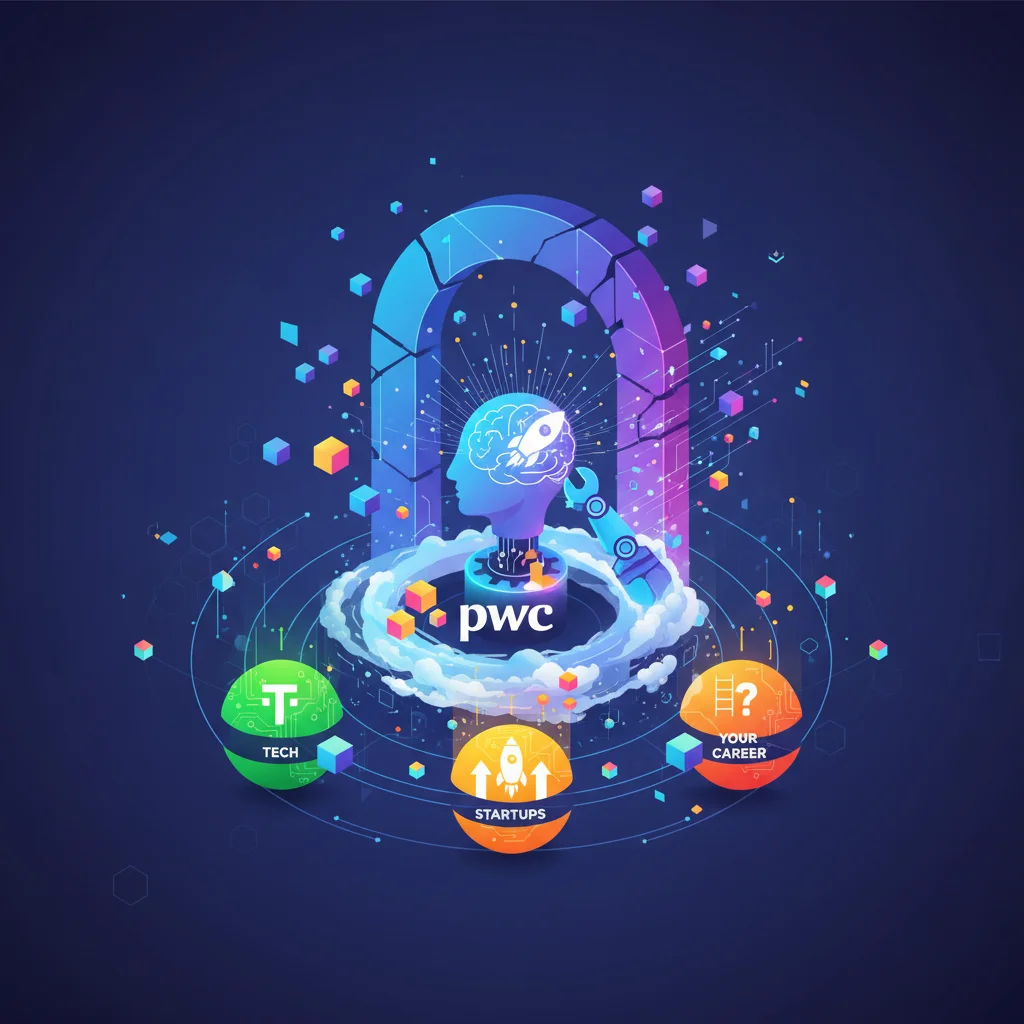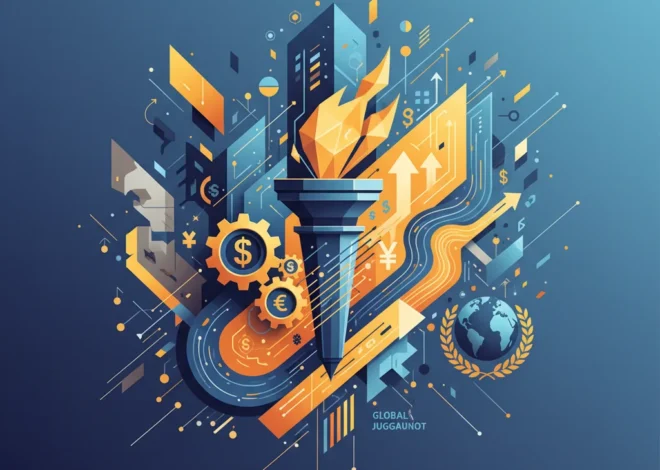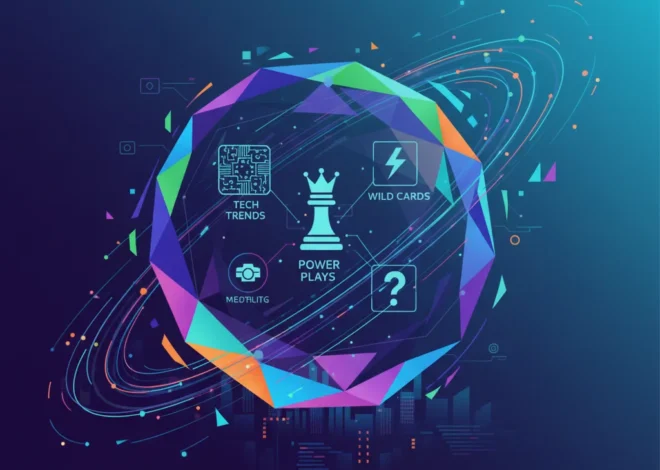
The End of the Entry-Level Job? What PwC’s AI Warning Means for Tech, Startups, and Your Career
It was a quiet bombshell dropped into the professional world. A top boss at one of the world’s largest accountancy firms, PwC, came forward with a stark prediction: artificial intelligence will inevitably shrink the number of entry-level graduate jobs at the company. This wasn’t a distant, sci-fi prophecy. This was a statement of intent from a pillar of the corporate world, signaling a fundamental shift that is already underway.
In a recent interview, PwC’s UK chairman, Kevin Ellis, confirmed that while the firm is still hiring thousands of graduates, the relentless march of AI-powered automation means the traditional, high-volume intake of junior staff is on a countdown. The tasks that once formed the bedrock of a graduate’s first few years—sifting through data, checking ledgers, and preparing reports—are prime candidates for being absorbed by sophisticated algorithms.
But this isn’t just a story about accountants. This is a canary in the coal mine for every knowledge-based industry. What’s happening at PwC is a preview of the disruption and opportunity heading for law, marketing, finance, and even software development. For developers, tech professionals, entrepreneurs, and startups, this isn’t a threat; it’s a massive, flashing green light. The future of work is being rewritten, and those who build, understand, and leverage the new tools will be the ones holding the pen.
The Automation Engine: What’s Driving the Change at PwC?
To understand why a giant like PwC is making this pivot, we need to look under the hood at the technologies fueling this transformation. This isn’t about one single piece of software, but a confluence of powerful tech trends that have reached a critical tipping point.
- Machine Learning (ML) for Auditing: Traditionally, auditors would sample a portion of a company’s financial data to look for errors. Now, machine learning models can analyze 100% of the transactions, spotting anomalies and potential fraud with a speed and accuracy no human team could ever match. This reduces manual grunt work and elevates the human auditor’s role to investigating the exceptions flagged by the AI.
- Cloud-Based SaaS Platforms: The rise of powerful, scalable SaaS (Software as a Service) solutions means firms like PwC don’t need to build everything from scratch. They can integrate best-in-class AI tools for everything from document analysis to tax compliance, all delivered through the cloud. This accelerates innovation and adoption.
- Natural Language Processing (NLP): A huge part of junior-level work in professional services involves reading and summarizing vast quantities of text—contracts, reports, regulations. Modern NLP models can ingest these documents in seconds, extracting key clauses, identifying risks, and generating summaries, freeing up human capital for higher-value strategic thinking.
- Generative AI Co-Pilots: Perhaps the most visible change is the emergence of generative AI assistants. These tools help professionals draft emails, write code, generate report outlines, and query massive datasets using plain English. This dramatically boosts the productivity of existing employees, meaning fewer people are needed for the same volume of work. PwC itself has been developing its own generative AI tool, demonstrating a commitment to integrating this tech at a core level.
The convergence of these technologies creates a powerful engine for automation that is finally mature enough to handle the complexities of professional services. The “busy work” that once served as a training ground for graduates is now simply an inefficient process waiting to be optimized.
Redefining the “First Job”: From Doer to Analyst
The very definition of an entry-level role is being reforged. It’s shifting away from manual execution and towards oversight, analysis, and human-centric skills. The graduate of tomorrow won’t be hired to manually reconcile spreadsheets; they’ll be hired to ask the AI the right questions, interpret its output, and communicate the findings to clients.
To illustrate this shift, let’s compare the tasks of a traditional entry-level associate with their AI-augmented counterpart.
| Traditional Entry-Level Tasks (The “Old Way”) | AI-Augmented Entry-Level Tasks (The “New Way”) |
|---|---|
| Manual data entry from invoices and bank statements. | Supervising an AI tool that performs data extraction and flagging exceptions for review. |
| Manually checking samples of financial transactions for compliance. | Analyzing the output of an ML model that has scanned 100% of transactions for anomalies. |
| Spending hours formatting reports and presentations in Excel and PowerPoint. | Using a generative AI prompt to create a first draft of a report and then refining the narrative and strategic insights. |
| Reading through legal contracts to find specific clauses. | Querying an NLP-powered database to instantly locate relevant clauses across thousands of documents. |
| Following a rigid, process-driven checklist. | Engaging in creative problem-solving for issues the AI cannot handle and improving the automation workflow. |
The table makes one thing clear: the new role is more engaging, more analytical, and requires a completely different skill set. The demand for rote memorization and procedural discipline is fading, replaced by a premium on critical thinking, data literacy, and technological fluency.
The Ripple Effect: Every Industry is Next
PwC’s announcement is a sector-specific event with universal implications. The same forces of artificial intelligence and automation are reshaping roles across the board.
- Law: AI tools are already automating document review (e-discovery) and legal research, tasks that once consumed countless hours for junior paralegals and associates.
- Marketing: Generative AI is writing ad copy, creating social media content, and analyzing campaign performance, changing the role of junior marketers from content creators to brand strategists and AI prompt engineers.
- Software Development: AI co-pilots are writing boilerplate code, suggesting bug fixes, and even designing system architecture. This allows senior developers to be more productive and changes the learning curve for those new to programming.
- Cybersecurity: AI is essential for modern threat detection, analyzing network traffic for patterns that indicate an attack. This shifts the role of a junior cybersecurity analyst from manual log review to managing and fine-tuning the AI defense systems.
The common thread is the automation of predictable, data-driven tasks, which allows human talent to focus on creativity, strategy, and complex problem-solving. While PwC still plans to hire over 1,000 graduates this year, a reduction from previous years, it’s a clear indicator of a strategic reallocation of human capital.
The Ghost in the Machine: How a "Failed" Console Paved the Way for Today's Tech Innovation
The Upside: A Gold Rush for Tech Talent and Startups
For every traditional role that is transformed, a new one is created—and the vast majority of these new roles are in tech. This shift represents a massive opportunity for the builders, innovators, and entrepreneurs in the audience.
For Developers and Tech Professionals:
The demand for talent that can build, implement, and maintain these AI systems is exploding. This includes:
- AI/ML Engineers: To develop the core models.
- Data Scientists: To clean, structure, and interpret the data that fuels AI.
- Cloud Architects: To build the scalable infrastructure these systems run on.
- Cybersecurity Experts: To protect the incredibly sensitive financial and client data being processed by AI.
- Product Managers: To bridge the gap between business needs and technical possibilities.
For Entrepreneurs and Startups:
Large corporations like PwC are powerful but can be slow to adapt. This creates openings for agile startups to build niche solutions. The opportunities are endless:
- Vertical SaaS: Create AI-powered SaaS platforms tailored for specific industries (e.g., “AI for tax law,” “ML for commercial real estate auditing”).
- Integration & Automation Tools: Build software that helps large firms connect their legacy systems to modern AI APIs.
- Upskilling & Training Platforms: As highlighted in the Editor’s Note, create solutions to retrain the existing workforce for an AI-augmented reality.
- Cybersecurity for AI: Develop new security paradigms to protect against AI-specific threats like model poisoning and data leakage.
Your Action Plan: How to Thrive in the Age of AI
The message from PwC isn’t that the game is over for young professionals; it’s that the rules have changed. Complaining about it is a losing strategy. Adapting to it is how you win. Here’s how:
- Cultivate “AI-Proof” Skills: Focus on what machines can’t do well. This includes critical thinking, creative problem-solving, complex communication, leadership, and emotional intelligence. These are the skills that will command a premium.
- Develop T-Shaped Expertise: Go deep in your chosen field (the vertical bar of the “T”), but also build a broad understanding of technology, data analysis, and business fundamentals (the horizontal bar). You need to be the person who can speak both the language of your industry and the language of the tech that is transforming it.
- Embrace Lifelong Learning: Your degree is just the starting line. You need to constantly be learning new tools, new software, and new concepts. Whether it’s taking an online course in programming with Python, getting a certification in a major cloud platform, or just staying current with the latest AI trends, continuous learning is no longer optional.
- Learn to Partner with AI: Don’t view AI as a competitor. View it as the most powerful tool ever created. Become an expert at using it. Master prompt engineering. Understand its limitations. The person who can leverage AI to be 10x more productive is infinitely more valuable than the person who ignores it.
Beyond the Hype: Who's Really Winning the Global AI Race?
The Dawn of a New Professional Era
The announcement from PwC is not an obituary for the graduate job. It’s a birth announcement for a new kind of professional—one who is more analytical, more strategic, and more technologically empowered than ever before. The mundane, repetitive tasks that defined the first rung of the corporate ladder are being automated away, and that’s a good thing. It frees up human brainpower for more meaningful work.
The transition will be challenging, and it requires a fundamental rethink of education, training, and career development. But for those in the tech world, it’s the clearest sign yet that the innovation you are driving is not just changing industries—it’s changing the very nature of work itself. The future doesn’t belong to the people who can do the work of a machine; it belongs to the people who can direct the machines to do work that was never before possible.


